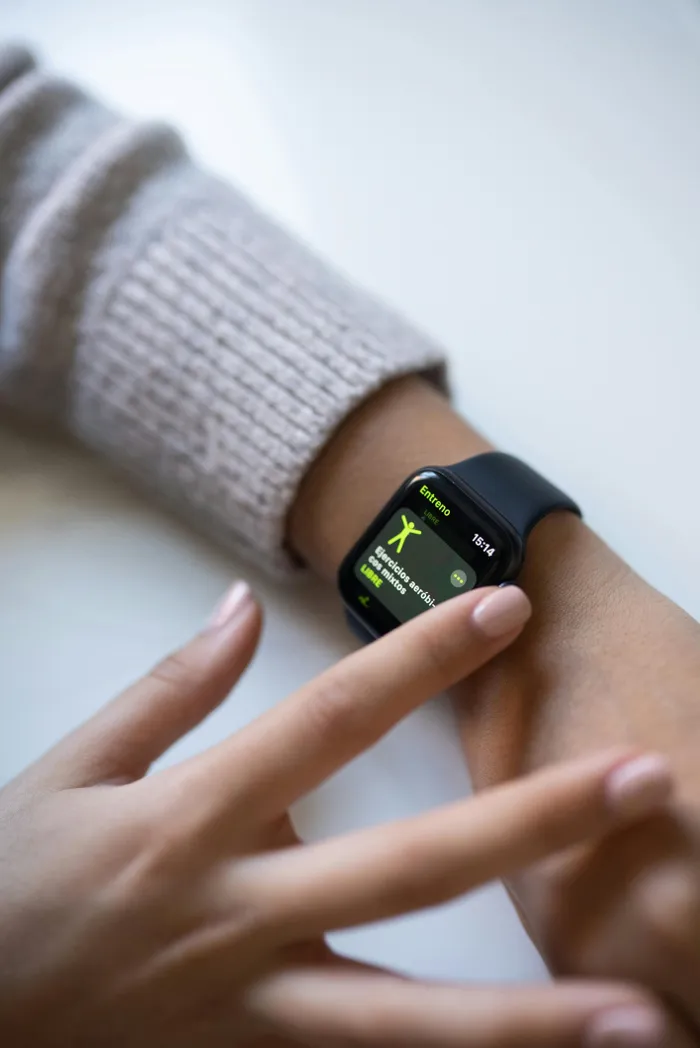A women’s wellbeing guide and toolkit: nurturing balance through holistic living
Clarity and release

From meditation apps to fitness trackers and digital planners, technology can help you stay consistent without overthinking, says the writer.
Image: Pexels.com/Dario Fernandez Ruz
IN TODAY'S fast-paced world, women often find themselves juggling multiple roles - professional, caregiver, partner, friend - while trying to keep their own needs in sight.
Too often, self-care slips to the bottom of the list as women try to be the super mum, super wife, or super women in all areas of their lives. But your wellbeing is not a luxury; it is the foundation that allows you to show up fully in every area of your life. This guide is designed as a small yet powerful toolkit, combining holistic approaches - diet, mindfulness, movement, and practical support systems - to help you manage stress, regain balance, and thrive.
Nourishing from within: diet for energy and calm
Food plays a vital role not only in physical health but also in mood and resilience. A balanced diet rich in whole foods can stabilise energy and support mental clarity. Consider:
- Prioritise whole foods: Focus on vegetables, fruit, lean proteins, nuts, seeds, and whole grains to fuel your body consistently.
- Stay hydrated: even mild dehydration can impact mood and concentration.
- Support your cycle: women’s nutritional needs shift with hormonal changes. Magnesium-rich foods (like leafy greens, avocado, and dark chocolate) may ease PMS symptoms, while iron-rich foods support energy.
- Limit stimulants: caffeine and sugar spikes can intensify feelings of overwhelm. Swap with herbal teas or snacks combining protein and fiber for steadier energy.
Think of meals as a form of self-care - a moment to pause, nourish, and recharge.
Mindfulness and meditation: finding calm in the chaos
When stress or overwhelm builds, grounding yourself in the present moment can make a world of difference. Mindfulness doesn’t need hours of practice; even a few minutes can reset your nervous system.
- Mini breaks: Try a two-minute breathing exercise called box breathing - inhale for four seconds, hold for four, exhale for four and pause for 4 seconds.
- Meditation apps: Tools like Headspace, Calm, Insight Timer, and Heartfulness mediation can guide you through quick sessions, perfect for busy schedules. Practice mantra meditation like Hare Krishna or So hum, or Om, can also be beneficial.
- Mindful rituals: Incorporate mindfulness into daily tasks - sip your morning tea or coffee slowly, notice the textures while cooking, or walk in nature to connect more with the beauty and tranquility.
The goal is not perfection; it is creating small pockets of peace that restore balance throughout your day.
Movement as medicine: exercise, yoga and Pilates
Exercise doesn’t have to mean grueling gym sessions. The best form of movement is the one that brings you joy and fits seamlessly into your life.
- Yoga strengthens the body while calming the mind. Gentle flows can relieve tension, while restorative poses promote deep rest.
- Pilates supports posture, core strength, and alignment, especially helpful if you spend long hours at a desk.
- Walking outdoors offers fresh air, vitamin D, and a mental reset.
- Micro workouts: Even 10 to 15 minutes daily can boost mood and energy.
Movement is not just about fitness; it is about releasing stress, reconnecting with your body, and building resilience.
Creating balance: work, life and family
Women often shoulder invisible labour - balancing careers with home responsibilities. Achieving harmony means setting boundaries and recognising your own needs.
- Prioritise: Find what truly matters each day. Let go of tasks that do not serve your wellbeing.
- Set boundaries: Practice saying no without guilt when demands exceed your capacity.
- Daily rituals: Start and end your day with moments just for you, whether journaling, stretching, or enjoying a quiet coffee.
- Communicate: Share responsibilities at home and work instead of carrying everything alone.
Remember: balance is not about doing it all - it is about aligning your time and energy with what matters most.
Toolkit for stressful moments
When overwhelm strikes, a few simple tools can ground and support you:
- Breathing practice: 5 deep belly breaths to calm your nervous system.
- Journaling: write down your thoughts for clarity and release.
- Movement break: a short walk or stretch to shift energy.
- Music reset: play calming or uplifting songs.
- Reach out: call a friend, mentor, or support network instead of isolating. Get help and be courageous to ask for help, people are willing to help, you need only take that first step to ask.
Having these strategies at hand can transform a moment of crisis, challenge, conflict, relationship, financial, health, bereavement into an opportunity for reset.
Building a support system and using technology
Wellbeing is not a solo journey. Having a network of people and resources makes the path lighter.
- Support networks: Friends, family, or women’s circles can offer empathy and perspective.
- Professional help: therapists, coaches, or nutritionists can provide personalised guidance.
- Apps and tech: From meditation apps to fitness trackers and digital planners, technology can help you stay consistent without overthinking.
Asking for support is a sign of strength, not weakness.
Final thoughts
Women’s wellbeing flourishes when approached holistically - mind, body, and spirit working in harmony. By nourishing yourself with balanced food, grounding in mindfulness, moving with joy, creating boundaries, and leaning on support, you cultivate resilience and vitality.
This toolkit is not about perfection but about building small, sustainable practices that honor your needs and allow you to thrive amidst life’s demands. When you prioritise your wellbeing, you don’t just survive - you flourish.

Dr Seshni Moodliar Rensburg
Image: File
Dr Seshni Moodliar Rensburg is a qualified doctor, author, and coach/mentor. She is passionate about mental wellbeing and holistic approaches to wellbeing. You can find her on Dr Seshni Moodliar on Facebook and DrSeshniMoodliar on Instagram.